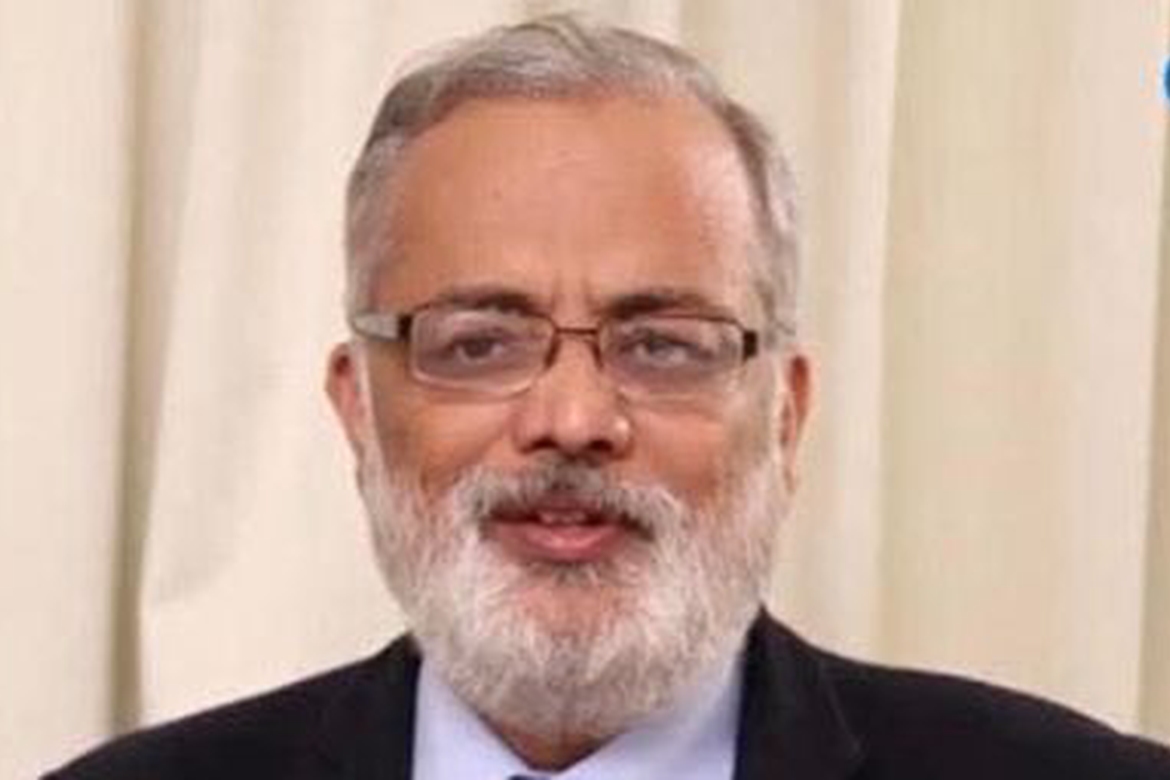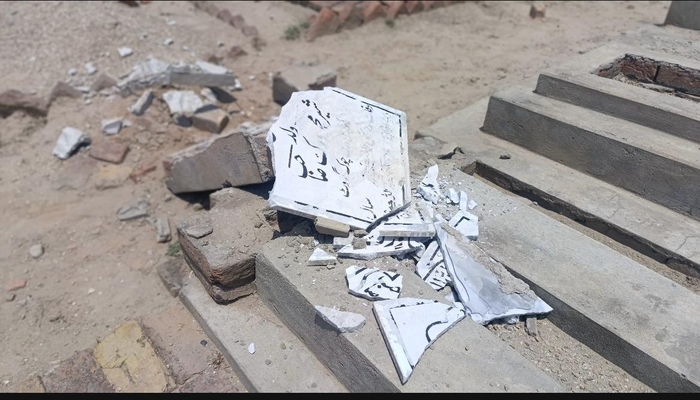Doctor Shot at Hospital – Four Ahmadis Killed in One Month

Sheikh Mahmood was shot from behind in a hospital corridor. He died from his injuries.
Txt: CSW and Stefanus Alliance, Photo: CSW
A prominent Ahmadi doctor was shot and killed in Sargodha, in Pakistan’s Punjab Province, on 16 May. It was the fourth murder of an Ahmadi Muslim in Pakistan within a month.
According to early reports, Dr. Sheikh Mahmood, a highly respected physician, arrived at Fatima Hospital around 2:30 p.m. to see his patients as usual. As he walked through the hospital corridor, an unidentified assailant lying in wait opened fire from behind. The attacker fled the scene with the pistol still in hand. Dr. Mahmood was hit by two bullets and was immediately transferred to Civil Hospital Sargodha, where he later died from his injuries.
Dr. Mahmood was 58 years old. He was known for his dedication, medical expertise, and compassion. He had no known personal enemies. He leaves behind his mother, wife, two daughters, and two sons. According to AP, police are searching for the perpetrator, but it is unknown whether any progress has been made.
Four Killings in April and May
The murder of Dr. Mahmood marks the fourth killing of an Ahmadi Muslim in April and May of this year.
In April, two Ahmadi Muslims were killed: Laeeq Ahmad Cheema was beaten to death by a mob in Karachi on 18 April—supporters of the extremist party Tehreek-i-Labbaik Pakistan (TLP). TLP, a hardline Islamist group, was temporarily banned in Pakistan in the past but is no longer outlawed.
Muhammad Asif was shot and killed in Kasur on 24 April.
In Karachi on 12 May, another Ahmadi Muslim was murdered. Tahir Mahmood and Ijaz Hussain—both Ahmadis—had been arrested for participating in Friday prayers the day before. During a court hearing, both were dragged out of the courtroom and attacked by a mob. Tahir Mahmood was killed in the assault.
“We Are Shocked”
“We at Stefanusalliansen are shocked by these murders. The government of Pakistan must act against the extremist forces behind the bloody, systematic, and ongoing wave of violence against the Ahmadi community. The perpetrators must be held accountable, and their ideology confronted and dismantled. This dangerous extremism threatens not only the Ahmadi community and other minorities, but the entire country,” says editor Johannes Morken of Stefanusalliansen.
Gravestones Vandalized
In another targeted attack against the Ahmadi community, at least 90 gravestones were vandalized on 10 May in Rhoda, Punjab Province. The tombstones were smashed and defaced, and debris scattered throughout the cemetery. According to the Ahmadiyya Muslim Jamaat in the UK, 269 Ahmadi graves have been desecrated in 11 separate incidents in 2025 alone, while 319 gravestones were destroyed across 21 incidents in 2024.
Raises Alarm
The U.S. Commission on International Religious Freedom (USCIRF), a bipartisan body appointed by Congress, is sounding the alarm over the growing persecution of Ahmadis in Pakistan.
Commission Vice Chair Meir Soloveichik stated that the murders of Thamir Mahmood and Dr. Sheikh Mahmood in May are “the latest examples of a deeply troubling pattern of systematic, ongoing, and egregious violence targeting Pakistan’s Ahmadiyya Muslim community.”
He added:
“It is profoundly concerning that Ahmadi Muslims, their mosques, and their cemeteries continue to be frequent targets of violent mobs who act with impunity.”
Forbidden to Call Themselves Muslims
Pakistan’s Ahmadiyya Muslim community is a religious minority but is legally prohibited from referring to themselves as Muslims under the country’s harsh blasphemy and anti-Ahmadi laws. They are branded as heretics. Pakistan’s penal code also prevents them from building or referring to their places of worship as mosques or from participating in public worship of any kind.
The Pakistani state is also complicit in the persecution, even if it is mobs and extremist groups that carry out the killings.
“Just this year, Pakistani authorities have arrested dozens of Ahmadis and prevented them from celebrating Eid or even attending Friday prayers,” said USCIRF Commissioner Asif Mahmood.
“We repeat USCIRF’s call for the U.S. government to work with Pakistani authorities to repeal or significantly amend the blasphemy and anti-Ahmadiyya laws to ensure that the right to freedom of religion or belief for Ahmadis is respected.”

One of many Ahmadi graves that have been vandalized. Photo: CSW
“Must Be Held Accountable”
After the murder of Dr. Sheikh Mahmood, CSW Founder and President Mervyn Thomas stated:
“CSW is appalled by the senseless killing of Dr. Sheikh Mahmood in Sargodha and the vandalism of Ahmadi graves in Khushab. These acts of violence are not only attacks on individuals but also on the fundamental right to freedom of religion or belief.
We extend our deepest condolences to Dr. Mahmood’s family and loved ones. He was a doctor who treated all patients with compassion and professionalism. His murder is part of a deeply disturbing trend of targeted violence against Ahmadis, who face intense persecution and discrimination under Pakistani law and societal prejudice.
Despite constitutional guarantees, Ahmadi Muslims endure sustained violence and systemic repression, often without the perpetrators being held to account.
Pakistani authorities must act urgently to ensure justice and to protect Ahmadis and all religious minorities. CSW also calls on the international community to hold Pakistan accountable for its violations of international human rights obligations.”
Judge Threatened Into Retraction
In recent years, Islamist extremists in Pakistan have intensified their persecution of Ahmadis—and have exerted strong pressure on politicians and the judiciary.
In August last year, Sunni extremists forced the Supreme Court to withdraw a ruling that had favored an Ahmadi Muslim. The individual had been acquitted of blasphemy, and the ruling had touched on the importance of religious freedom—implying that blasphemy laws should not be used to suppress it. That section of the verdict was retracted after the judges received death threats.
Pakistan Urged to Be Listed Among Worst Offenders
In May last year, a Christian man was lynched to death in Sargodha—the same city where Dr. Mahmood was killed—after being accused of blasphemy. USCIRF highlighted this as one of several tragedies in its annual report, noting that the situation for religious freedom in Pakistan worsened in the past year. Christians, Ahmadis, Hindus, and Shia Muslims are all under pressure. Four Ahmadis were killed in 2023, USCIRF points out.
Accused of Blasphemy
A recent report from Pakistan’s Human Rights Observer reveals that most individuals accused of blasphemy in the country are Muslims. However, more than twice as many Ahmadis as Christians are targeted. Between 1987 and 2024, 831 Ahmadis and 311 Christians were subjected to abuses under blasphemy laws. Since 1994, 26 Christians and 7 Ahmadis have been extrajudicially killed after being accused and brought to court for blasphemy.